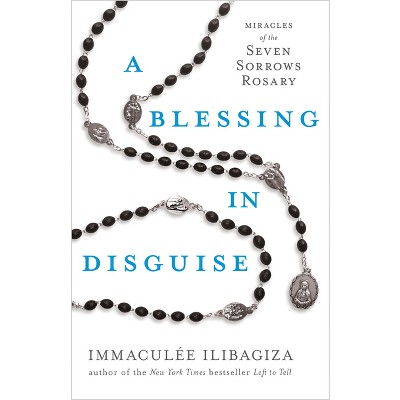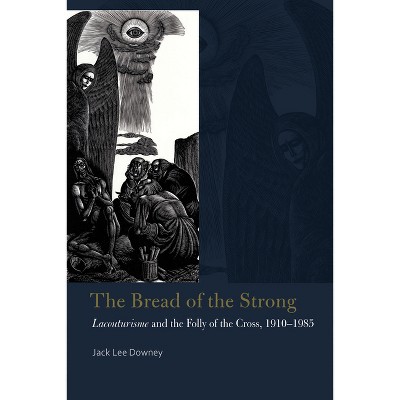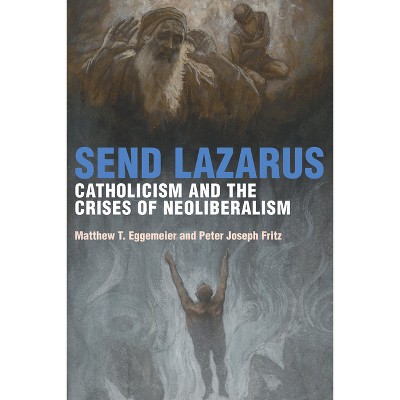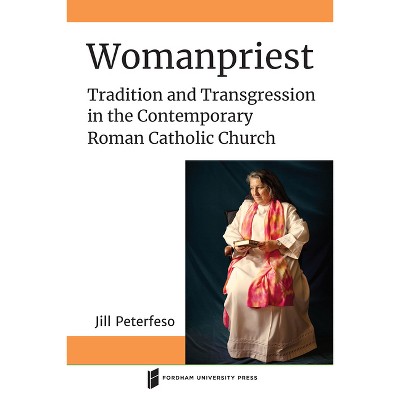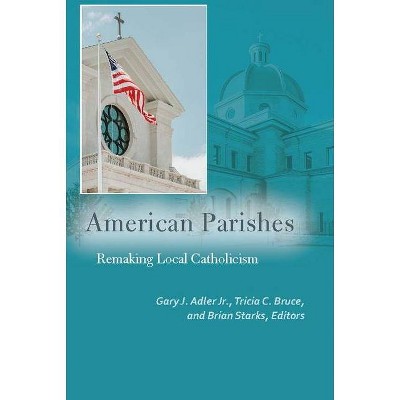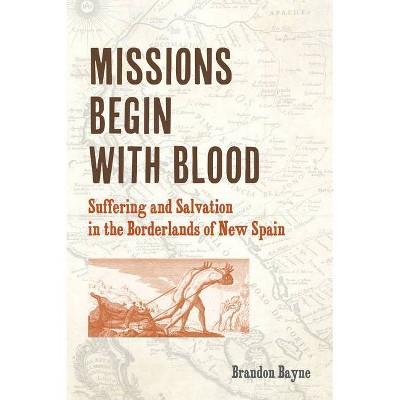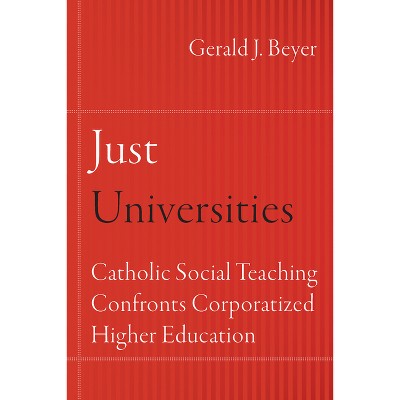Inventing America's First Immigration Crisis - (Catholic Practice in North America) by Luke Ritter (Paperback)

About this item
Highlights
- Why have Americans expressed concern about immigration at some times but not at others?
- About the Author: Luke Ritter is an assistant professor at New Mexico Highlands University.
- 288 Pages
- Social Science, Discrimination & Race Relations
- Series Name: Catholic Practice in North America
Description
About the Book
"Why have Americans expressed concern about immigration at some times but not at others? In pursuit of an answer, this book examines America's first nativist movement, which responded to the rapid influx of 4.2 million immigrants between 1840 and 1860 and culminated in the dramatic rise of the National American Party. As previous studies have focused on the coasts, historians have not yet completely explained why westerners joined the ranks of the National American, or "Know Nothing," Party or why the nation's bloodiest anti-immigrant riots erupted in western cities--namely Chicago, Cincinnati, Louisville, and St. Louis. In focusing on the antebellum West, this book illuminates the cultural, economic, and political issues that originally motivated American nativism and explains how it ultimately shaped the political relationship between church and state. In six detailed chapters, Ritter explains how unprecedented immigration from Europe and rapid westward expansion reignited fears of Catholicism as a corrosive force. He presents new research on the inner sanctums of the secretive Order of Know-Nothings and provides original data on immigration, crime, and poverty in the urban West. Ritter argues that the country's first bout of political nativism actually renewed Americans' commitment to church-state separation. Native-born Americans compelled Catholics and immigrants, who might have otherwise shared an affinity for monarchism, to accept American-style democracy. Catholics and immigrants forced Americans to adopt a more inclusive definition of religious freedom. This study offers valuable insight into the history of nativism in U.S. politics and sheds light on present-day concerns about immigration, particularly the role of anti-Islamic appeals in recent elections"--Book Synopsis
Why have Americans expressed concern about immigration at some times but not at others? In pursuit of an answer, this book examines America's first nativist movement, which responded to the rapid influx of 4.2 million immigrants between 1840 and 1860 and culminated in the dramatic rise of the National American Party. As previous studies have focused on the coasts, historians have not yet completely explained why westerners joined the ranks of the National American, or "Know Nothing," Party or why the nation's bloodiest anti-immigrant riots erupted in western cities--namely Chicago, Cincinnati, Louisville, and St. Louis. In focusing on the antebellum West, Inventing America's First Immigration Crisis illuminates the cultural, economic, and political issues that originally motivated American nativism and explains how it ultimately shaped the political relationship between church and state.
In six detailed chapters, Ritter explains how unprecedented immigration from Europe and rapid westward expansion re-ignited fears of Catholicism as a corrosive force. He presents new research on the inner sanctums of the secretive Order of Know-Nothings and provides original data on immigration, crime, and poverty in the urban West. Ritter argues that the country's first bout of political nativism actually renewed Americans' commitment to church-state separation. Native-born Americans compelled Catholics and immigrants, who might have otherwise shared an affinity for monarchism, to accept American-style democracy. Catholics and immigrants forced Americans to adopt a more inclusive definition of religious freedom. This study offers valuable insight into the history of nativism in U.S. politics and sheds light on present-day concerns about immigration, particularly the role of anti-Islamic appeals in recent elections.Review Quotes
Inventing America's First Immigration Crisis is an impressive, important book . . . Given that we are living in an era characterized by more anti-immigrant violence than at any time since the heyday of the Know Nothings, Ritter's message is one that Americans need to hear now more than ever.---Tyler Anbinder, Missouri Historical Review
Luke Ritter provokes his readers to consider the surprising origins of our modern-day understanding of church-state separation, rightly seen by many as essential to 'diversity, ' 'inclusion, ' and 'tolerance, ' in the sometimes rabid intolerance of the nativist movement in antebellum America. To do this, he invites scholars who have focused primarily on nativism in the Northeast (and only recently in the South) to turn their eyes west. It was in the West, he tells us, that rank religious bigotry was transformed into a higher ideal that is used by advocates on both the left and the right to defend religious freedom today.---Maura Jane Farrelly, author of Anti-Catholicism in America, 1620-1860
Luke Ritter's Inventing America's First Immigration Crisis couldn't be more topical. Just in time for the Capitol Insurrection of 2021, Ritter's book unearths events like the Cincinnati Election Day Riot and Chicago Lager Riot of 1855, both triggered by the fear that illegal undocumented voters would seize power from the rightful constituents of the American republic. The MAGA hordes of the Trump years find their parallel in the Know-Nothings, the secretive, conspiracy-fueled brotherhood that channeled wide popular support into electoral success as the American Party... Inventing America's First Immigration Crisis is a fascinating, readable, fact-packed exploration of motifs in American culture that show no signs of going away. It may not explain why the animosities of the 2020s persist, but Ritter definitely shows that they are no new thing.---Timothy Morris, University of Texas at Austin
As the US deals with current immigration issues, Inventing America's First Immigration Crisis reminds one that nativism, anti-immigration sentiment, and anti-Catholicism have deep histories... Highly recommended.-- "Choice"
About the Author
Luke Ritter is an assistant professor at New Mexico Highlands University. He received his Ph.D. in American history from Saint Louis University. He specializes in the history of immigration, nativism, and religion in the mid-nineteenth-century United States. Ritter received the William E. Foley Research Fellowship in 2019, the Environment in Missouri History Fellowship in 2016, and the Filson Fellowship in 2013. He is the author of numerous articles published in the Journal of American Ethnic History, American Nineteenth Century History, the Journal of Early American History, and the Missouri Historical Review.Shipping details
Return details
Guests also viewed
